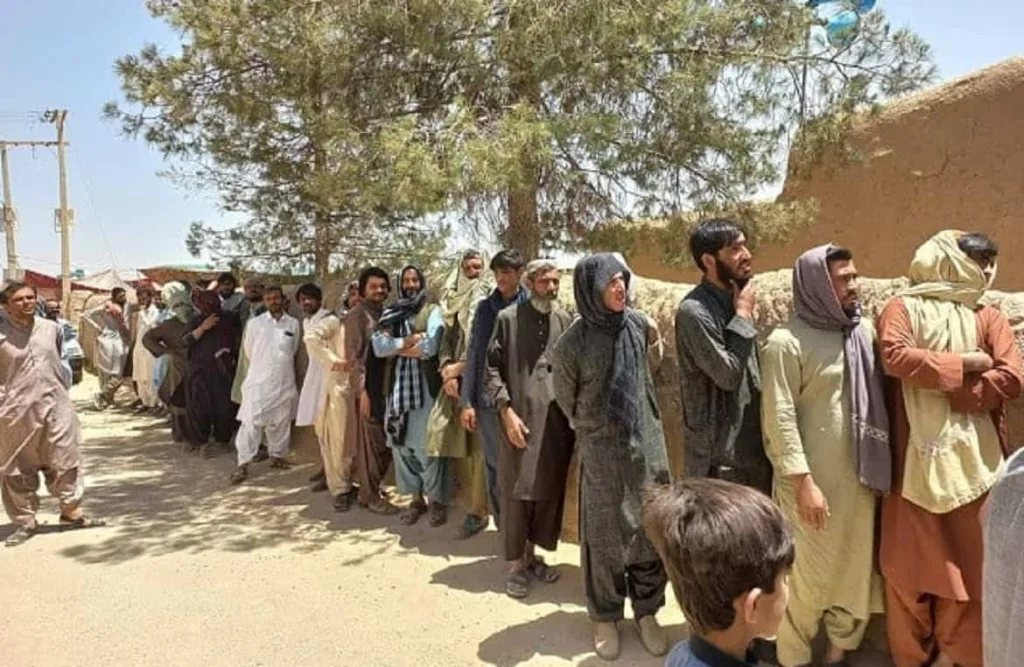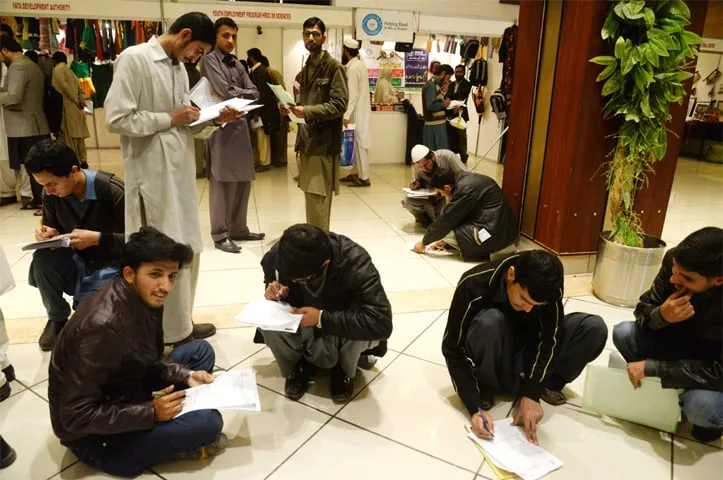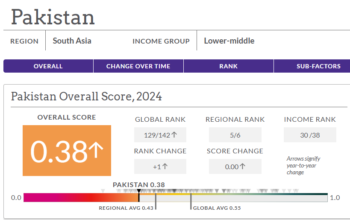Sara Baloch* obtained her postgraduate degree in Education seven years ago. Yet, she remains part of the unemployed youth of Balochistan — the largest and most mineral-rich province of Pakistan.
“Despite my Master’s degree, securing a government job in Balochistan is hard,” she says. “That is why I stitch and sell embroidered clothes for extra cash instead of just depending on my parents.”
“My parents were poor but left no stone unturned in sponsoring my education,” she adds. “But graduating with a degree has not eased my troubles. My degree is only a piece of paper, which I filed away years ago. It continues to sit in my drawer.”
She is not alone in her predicament. A lack of job opportunities and mounting financial hardships have made her — and many like her — mentally distressed and hopeless.
Balochistan’s educated youth is increasingly feeling frustrated and hopeless because years of university education are no guarantee of securing a job. With rising inflation, this crisis is also affecting their mental health
Youth unemployment in Balochistan
Of the 25,000 students who graduated from different universities in Balochistan in 2021, only 2,000 students were able to secure a job. According to the Pakistan Labour Force Survey conducted in 2014, Balochistan has the highest unemployment rate in the country.
Despite its potential, Balochistan has always lagged behind other Pakistani provinces across most development-related metrics. In recent times, the status of the province has worsened because of a rising poverty and youth unemployment rate, with the latter currently standing at an all-time high of 9.13 percent.
The leading reasons for youth unemployment in Balochistan are a mismanagement of resources, lack of digital or technical skills, government negligence and a lack of job opportunities and business programmes.
Sana Samad, a freelance writer based in Turbat, blames the government for rising levels of unemployment, stating, “The main reason behind the spike in unemployment is governmental mismanagement. The government failed to provide job opportunities and launch policies aimed at creating new jobs. Furthermore, the provincial government is also not fully committed to tackling the menace of unemployment faced by the youth.”
It has become harder to break out of the poverty cycle many are born into. Although parents educate their children with the hope of achieving economic and social mobility, the rising inflation and deteriorating financial conditions of the country present bleak job prospects and no financial respite in Balochistan. Inadvertently, many degree-holders are being pushed into the poverty cycle, making them dependent on their families.
The pressing financial hardships force many aspiring job-seekers like Sara to drop out of the job-seeking process and instead turn to short-term financial options that can help them make some quick cash.
This has led to a rise in psychological disorders amongst the youth, many of whom admit to feeling hopeless, distressed and suffering from low self-esteem.
“Unemployment is extensively associated with distress among Balochistan’s youth,” explains Sara. “Many people have been jobless for almost nine years and see no respite in sight.”

Rising vacancies in the public sector
In Balochistan, most government posts have been kept vacant for years and, in recent times, the number of these vacancies has only risen. Given the debilitating youth unemployment rates, these vacancies have created panic and resentment.
“Nearly 6,000 candidates appear every year for a single government job opening,” complains Sara. “The government only announces a few selections, leaving many positions vacant.”
Balach Ali has been working at his brother’s shop in Tump Makran for some time now. Financial stress, coupled with his inability to secure a government job, has compelled him to assist his brother in his business despite the fact that Ali holds a Master’s degree in sociology.
“I have taken numerous tests for government jobs and failed,” he says. “It is common for the government to hire only a few people, leaving many ranks vacant. This makes no sense, as the number of candidates that apply for a single job is roughly three to six thousand. Are none of them qualified?”
Like many others, he has lost all hope of securing any job, let alone a government job.
A report by the Pakistan Observer states that, every year, the number of unemployed educated youths grow by 0.1 million, to which the provincial government’s refusal to fill the vacant posts contributes.
Maham Baloch*, a psychology student and a graduate from a university based in Turbat, offers some potential solutions to this rising issue. “Filling up the vacancies in the public sector, coupled with promoting industrial jobs, can help overcome high levels of unemployment and the psychological distress it has caused everyone seeking a job and those who are dependent on them,” she says.
Unemployment is now considered the most challenging social problem in Balochistan. The increasing unemployment rate will have a devastating and lasting impact on the youth of the province, as it can lead to a low self-esteem, depression, hopelessness, frustration and the youth taking drastic actions.
Stress and youth suicide
Recently, there has been a rise in the reported cases of suicide in Balochistan.
According to Paank, a non-profit organisation which oversees human rights violations in Balochistan, 56 people were reported to have committed suicide in 2022 alone. In 2021, at least 80 people took their own lives. Due to a dearth of reliable data provided by the Health Department, and the fact that suicide is a taboo subject that is not openly talked about in Pakistan, it is entirely possible that actual numbers of suicide or attempted suicide cases could be much higher than those reported.
Dr Taj Baloch is a psychiatrist working at Baloch Hospital in Turbat. According to him, “Depression and stress are the main drivers of suicidal thoughts among the youth.”
He believes that drug therapy and cognitive restructuring could help reduce the increasing number of suicides in the short-run. However, it is important to address the stressors which are pushing many into this state of helplessness to begin with.
Creating jobs, collecting taxes, imparting constitutional rights to citizens and promoting industries might help the provincial government to curtail the issue of unemployment, which affects the mental well-being of the people of Balochistan.
Joblessness in Balochistan is a peril waiting to be tackled because the longer it remains unaddressed, the greater the emotional, mental, psychological, social and economic toll it takes on Balochistan’s youth. Educated youngsters in the province feel betrayed because, despite putting in years of hard work to obtain a university degree, they are still unable to secure a steady source of income.
The threat of unemployment needs to be addressed so that these educated young men and women can flourish financially and also secure their peace of mind.Names have been changed to protect privacy.
The writer holds an LLB degree from the Department of Law at the University of Turbat.




